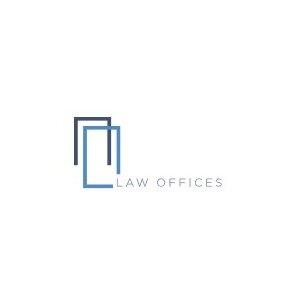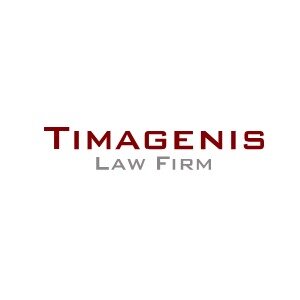Best Sanctions & Export Controls Lawyers in Greece
Share your needs with us, get contacted by law firms.
Free. Takes 2 min.
Or refine your search by selecting a city:
List of the best lawyers in Greece
About Sanctions & Export Controls Law in Greece
Sanctions and export controls are essential elements of Greek law that regulate the movement of goods, technology, and services across borders, as well as the transactions with certain individuals, companies, and countries. These rules are designed to align Greece with its international obligations, including those arising from the European Union and the United Nations. Greek authorities enforce a series of regulations to prevent prohibited or restricted trade activities, particularly those that could affect national security or violate international law.
Why You May Need a Lawyer
Legal issues concerning sanctions and export controls can be complex and carry severe consequences for individuals and businesses. You may need a lawyer if you are involved in any of the following situations:
- Exporting or importing goods that may be subject to international restrictions
- Engaging in transactions or partnerships with entities or individuals who are subject to sanctions
- Facing an investigation or enforcement action by Greek or EU authorities
- Need advice on ensuring compliance with continuously changing sanction regimes
- Uncertain about the classification of specific items or dual-use goods for export
- Developing internal compliance programs or training related to exports and sanctions
- Dealing with frozen assets or blocked transactions in Greek banks
- Responding to seizure or detention of goods at a Greek port or border
- Filing licenses or permit applications for transfers or exports
Local Laws Overview
Greece operates its sanctions and export controls framework primarily in accordance with EU regulations, which are directly applicable, alongside supplementary national measures. Key aspects include:
- EU Sanctions Regimes: Greece implements all restrictive measures adopted by the EU, including trade embargoes, asset freezes, travel bans, and restrictions on financing or investments.
- Dual-Use Goods Controls: Export of goods and technology with both civilian and military applications are subject to the EU Dual-Use Regulation, as enforced by Greek customs authorities.
- Arms Export Controls: Exporting military equipment or technology is highly regulated and requires specific licenses, with oversight by the Greek Ministry of Foreign Affairs and Ministry of Defense.
- National Law: Law 3978/2011, for example, sets forth rules on arms trade, while various ministerial decisions implement and interpret EU-wide sanctions locally.
- Enforcement: Authorities such as the Hellenic Customs, Financial and Economic Crime Unit (SDOE), and the Bank of Greece are responsible for monitoring and enforcing compliance.
- Licensing and Permits: Certain exports require pre-authorization and may be subject to conditions or denial depending on the item and the end-user destination.
Frequently Asked Questions
What are economic sanctions and who imposes them in Greece?
Economic sanctions are restrictions on trade, finance, or travel imposed as a tool of foreign policy. In Greece, these are mainly implemented through EU Regulations and United Nations Security Council Resolutions, with national authorities ensuring enforcement.
Do EU sanctions apply automatically in Greece?
Yes, as an EU member state, Greece applies EU sanctions automatically. These regulations are directly applicable without the need for national transposition.
What are dual-use goods and why are they regulated?
Dual-use goods are items, technologies, or software that can be used for both civilian and military purposes. They are regulated to prevent proliferation of weapons and unauthorized military use.
Who is responsible for export licensing in Greece?
Export licensing is generally managed by the Ministry of Foreign Affairs for strategic and military items, and customs authorities for other regulated goods.
Can I do business with individuals or entities listed under sanctions?
No. Engaging in business, direct or indirect, with listed individuals or entities is prohibited and may result in severe legal penalties.
What penalties exist for violating sanctions or export controls?
Violations can lead to confiscation of goods, heavy fines, criminal prosecution, imprisonment, and exclusion from public contracts, among other penalties.
What should I do if my goods are detained by Greek customs?
Contact a lawyer immediately to understand the specific grounds for detention and to navigate the appeals or release process. Ensure you provide all relevant documentation to customs.
Are there exemptions or licenses available under Greek or EU sanctions?
In specific cases, exemptions or licenses may be granted for humanitarian needs, academic research, or other defined purposes, provided proper application and review.
What are my obligations as a Greek business regarding sanctions compliance?
Greek businesses must perform due diligence checks, implement internal compliance policies, and immediately report any suspected breaches to authorities. Regular staff training is encouraged.
How often do the rules on sanctions and export controls change?
Sanctions regimes can change frequently, especially in response to international developments. It is essential to stay updated with official announcements and consider ongoing legal support.
Additional Resources
Several national and EU authorities provide guidance and up-to-date information on sanctions and export controls, including:
- The Ministry of Foreign Affairs of Greece for arms export and sanctions queries
- Hellenic Customs Authority for import-export restrictions and compliance
- Financial and Economic Crime Unit (SDOE) for enforcement matters
- The Bank of Greece for financial sanctions and asset freezes
- European Commission Sanctions Map and Dual-Use Export Control resources
- Ministry of Development and Investments for export licensing and industry support
Next Steps
If you are concerned about compliance with sanctions and export controls in Greece:
- Gather all relevant documentation about the goods, transactions, or individuals involved in your matter
- Monitor official publications from Greek and EU authorities for rule updates
- Consult a qualified lawyer experienced in sanctions and export controls to assess your case and recommend the best course of action
- Implement or review your internal compliance procedures to minimize risk
- Stay proactive in maintaining communication with relevant authorities when necessary
Seeking legal advice at an early stage can significantly reduce the risk of violations, financial losses, and reputational harm. If in doubt, contacting a specialist is always the safest approach.
Lawzana helps you find the best lawyers and law firms in Greece through a curated and pre-screened list of qualified legal professionals. Our platform offers rankings and detailed profiles of attorneys and law firms, allowing you to compare based on practice areas, including Sanctions & Export Controls, experience, and client feedback.
Each profile includes a description of the firm's areas of practice, client reviews, team members and partners, year of establishment, spoken languages, office locations, contact information, social media presence, and any published articles or resources. Most firms on our platform speak English and are experienced in both local and international legal matters.
Get a quote from top-rated law firms in Greece — quickly, securely, and without unnecessary hassle.
Disclaimer:
The information provided on this page is for general informational purposes only and does not constitute legal advice. While we strive to ensure the accuracy and relevance of the content, legal information may change over time, and interpretations of the law can vary. You should always consult with a qualified legal professional for advice specific to your situation.
We disclaim all liability for actions taken or not taken based on the content of this page. If you believe any information is incorrect or outdated, please contact us, and we will review and update it where appropriate.
Browse sanctions & export controls law firms by city in Greece
Refine your search by selecting a city.

















